Guide to performance tuning the Zetec engine from Ford
Tuning the Ford Zetec
"Tuning the Ford Zetec and best Zetec performance parts."
The later SVT version had a higher compression ratio and better setup on the VVT control to make more power.
The Zetec is a long running engine block and as such enjoys popularity in many projects today.
There are lots of parts around for them and plenty of mods that can be done from Turbocharging to Camshafts and head work.
We rely on our visitors to pass on tips and tell us about their projects and what worked on their car, and this article is the culmination of the feedback we have received. First let us look at the history and specs of this engine and then consider which tuning modifications work best on it.
History of the Zetec Engine
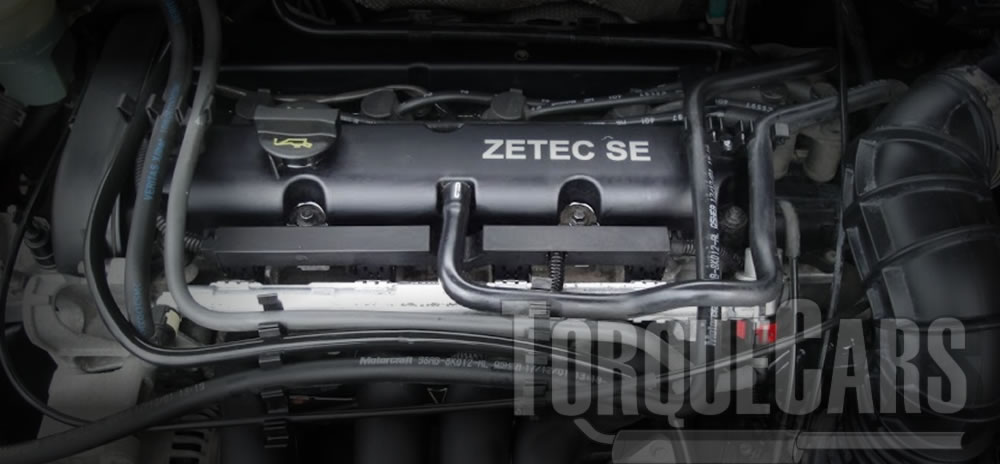
- 1.6 Ford Mondeo 90 bhp (Engine codes: L1F, L1J) 1992-05/1998 -
- 1.6 Ford Mondeo 1.6 88 bhp (Engine codes: L1N, L1Q) 05/1998-2001
- 1.6 Ford Fiesta Si 90 bhp
- 1.8 Ford Fiesta S/XR2i 105 bhp 16V
- 1.8 Ford Fiesta 130 bhp
- XR2i 16V/RS1800 1992–1995
- 1.6 Ford Escort Si (Europe) (90 bhp)
- 1.8 Ford Escort XR3i 105/130 bhp
- 1.8 Ford Escort 115 bhp Si/GTi1992–1998
- 1.6 Ford Contour and Mercury Mystique 1995–2000
- 1.6 Mercury Cougar 1999–2002
- 1.6 Ford Escape and Mazda Tribute 2000–2003
- 1.6 Ford Focus 2000–2003
- 1.6 Ford Escort ZX2. 1998-2003
- Formula Ford 2000 series (2003 – present)
- 2.0 Ford Escort ZX2, 130 hp 127 lb·ft 1998-2003
- 2.0 Ford Escort ZX2 S/R, 143 hp 46 lb·ft 1999-2000
- 2.0 Ford Focus, 128 hp 135 lb·ft 2000-2004
- 2.0 SVT Focus, 170 hp 145 lb·ft 2002-2004
- 2.0 Ford Contour 1995-2000
- 2.0 Mercury Mystique 1995-2000
- 2.0 Ford Escape 2001-2005
- 2.0 Mazda Tribute 2001-2005
What are the most effective Zetec parts
Just because a tuning mods is popular with Zetec owners it doesn't mean it is good, we will best tuning mods that will give your Zetec the biggest power gain return for your cash.
Altering your Zetec camshaft will make a dramatic difference to the engine engines power. Choosing a higher performance camshaft profile raises the engines power accordingly.
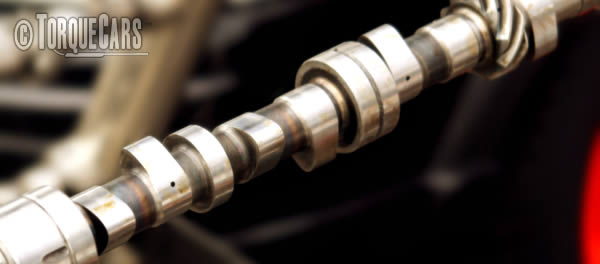
Fast road camshafts usually push up the performance throughout the rpm range, you could drop a little bottom end bhp but higher rpm power will be better.
Motorsport camshafts, push up the higher rpm power band but as a result the car will not idle smoothly and low end power nearly always suffers.
For a typical daily driver should ideally to match your bhp range to your usage of the car.
I would be surprised if you have found a Motorsport cam is a pleasure to live with when in heavy traffic.
Some Zetec engines respond better to less aggressive camshaft durations check your engine on a rolling road.
The map and fuelling also have a large bearing on the torque gains you'll make.
A longer valve duration can alter the torque band and on most engines the exhaust and intake durations do not need to match, although most cams and tuners use matched pairs there are some advantages to extending the intake or exhaust durations.
Please watch our introduction Video tutorial to car tuning. Be sure to subscribe and support our new channel.
How to tune your car
- Improve the handling
Focus on Suspension improvements, such as coilovers and make sure the bushings are in good order and that the alignment is correct. Then focus on improving the brakes, with a big disk brake conversion kit and fast road brake pads.
- Remove restrictions
Focus on the intake and exhaust with filters being the common point of restriction in a tuned car. Intercoolers may also become restrictive on turbo engines so this may also need to be uprated.
- Burn more fuel & air
Increase the fuelling so it matches the air coming into the engine. The ratio is important so you need to improve the fuel pump and injectors, so the head mods, big valve conversions, fast road camshafts and forced induction upgrades extra supply of air is adequately met.
- Test and replace any weak parts
Weak areas are commonly the clutch, the turbocharger and pistons and crankshaft in a highly tuned engine. Makes sure these components will cope with your power aspirations.
- The Tune or Remap
A cars ECU controls the fuel, timing, spark and even the turbo in some cases, so to fully extract your gains you should remap the car last and this will fully release the power. Some cars are easy to map, and others require piggyback ECU's or aftermarket ECU's but this is the most vital step of your tuning project.
Modifying to Stage 1:
Fast road camshaft, Panel air filters, Drilled & smoothed airbox, Remaps/piggy back ECU, Sports exhaust manifold, Intake headers.
Modifying to Stage 2:
Fast road cam, Sports catalyst & performance exhaust, Ported and polished head, induction kit, high flow fuel injectors, fuel pump upgrades.
Modifying to Stage 3:
Crank and Piston upgrades to alter compression, Twin charging conversions, Competition cam, Adding or Upgrading forced induction (turbo/supercharger), Internal engine upgrades (head flowing porting/bigger valves), Engine balancing & blueprinting.
Gas flowing the head is very important on most Zetec units if you are serious about hitting large power gains.
ECU flashing helps fully realize the full potential of all the upgrades you've done to your Zetec.
It will usually give around 30% more power on turbocharged vehicles and 15% on NASP engines, but you mileage will vary depending on the upgrades you've done and the condition of your engine.
It is the aim to any car tuning task to pull fuel and air into the Zetec engine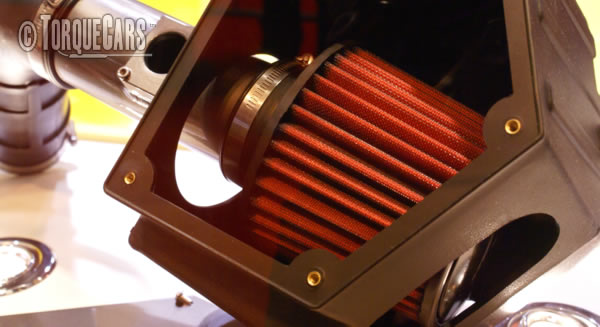
Headers carry the air from the filter and allow it to be pulled into the engine cylinders with fuel for the squish phase.
Design and rate of flow of the Headers can make a substantial change to fuel engine efficiency on the Zetec.
I usually find intake are ripe for aftermarket tuning parts, although a few makers provide reasonably good intake.
Increasing the Zetec valve size, getting port matching and head flowing will also improve power, and significantly will afford you increasing the power increase on other mods.
Zetec turbo upgrades - which are best?
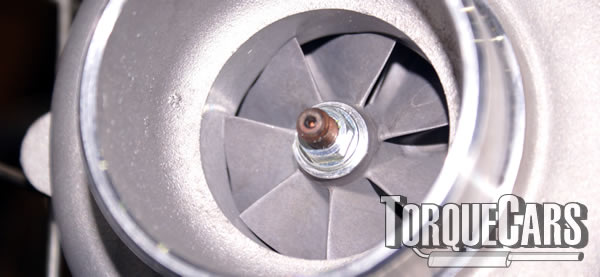
The more air to get into an engine, the more fuel it can burn and uprating the induction with a turbocharger upgrade makes massive power gains.
NASP engines need quite a lot of work when you add a turbo, so we have a separate guide to help you take into account the pros and cons of going this route on your Zetec.
LOWER THE COMPRESSION RATIO BEFORE ADDING A TURBO!
There are weak spots for every engine, with some being very over engineered and some only able to handle stock power
Discover these limitations and upgrade to better quality crank and pistons to utilize the power.
There are many car owners spending a lot of money on turbo upgrades on the Zetec only to suffer the humiliation of seeing the engine go up in smoke soon after it's completed.
Larger upgraded turbos commonly suffer no power at low rpm, and little turbos spool up quickly but won't have the high rpm bhp gains.
In the last 10 years the world of turbochargers is always evolving and we now see variable vane turbochargers, permitting the vane profile is altered according to speed to lower lag and increase top end power.
Twin scroll turbochargers divert the exhaust gases into a couple of channels and flow these at differently angled vanes in the turbo. They also boost the scavenging effect of the engine.
You'll commonly see there's a limit in the air flow sensor MAP/MAF/AFM on these engines when a lot more air is being drawn into the engine.
Going up you'll find 4 bar air sensors coping with quite large power gains, whereas the OEM air sensor sapped power at a much lower level.
Adding a supercharger or additional turbo will make large bhp and torque gains, although more complex to install. We have a twincharger bhp and torque adding guide if you want to read more.
Fuelling
When you boost the performance you will need to uprate to the fuel delivery.
More performance needs more fuel. 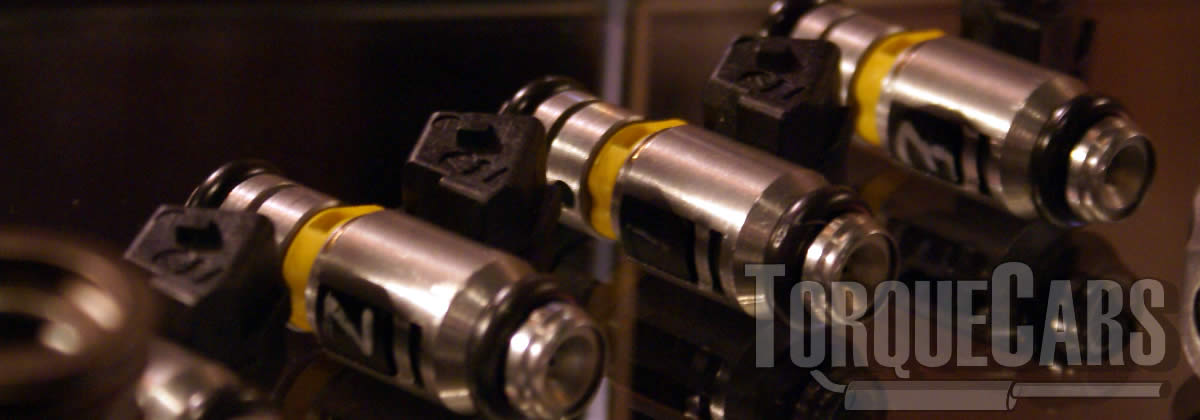 Most tuners we speak with say to be generous with your injector capacity.
Most tuners we speak with say to be generous with your injector capacity.
The rule of thumb is to add 20% when specifying an injector, this allows for injector deterioration and allows a little spare capacity should the engine require more fuel.
Zetec Exhaust
You only need to to improve your exhaust if your current exhaust is creating a flow problem.
On most factory exhausts you'll find the flow rate is still good even on modest power gains, but when you start pushing up the power levels you will need to get a better flowing exhaust.
Sports exhausts can help increase the flow of air through the engine.
But if your exhaust pipe is too big, ie: it's over 2.5 inches bore, you will lose a great deal of your flow rate and end up sapping power and torque.
Common exhaust restrictions can be traced to the catalyst installed, so adding a higher flowing race alternative will help avoid this restriction.
Weak spots Issues & problem areas on the Zetec
The Zetec engines are generally reliable and solid as long as they are regularly serviced and maintained.
Regular oil changes are vital on the Zetec, especially when tuned and will help extend the life and reliability of the engine.
For more information on Tuning your Ford engine please join us in our friendly forum where you can discuss Zetec tuning options in more detail with our Zetec owners. It would also be worth reading our unbiased Ford tuning articles to get a full grasp of the benefits and drawbacks of each modification.
Please help us improve these tips by sending us your feedback in the comments box below.
We love to hear what our visitors have got up to and which tuning parts work best for them on each model of car. Comments are used to improve the accuracy of these articles which are continually updated.
If you liked this page please share it with your friends, drop a link to it in your favourite forum or use the bookmarking options to save it to your social media profile.
Check out TorqueCars new YouTube channel, and see their awesome new content...
Feedback
Please use our forums if you wish to ask a tuning question, and please note we do not sell parts or services, we are just an online magazine.
Help us improve, leave a suggestion or tip
